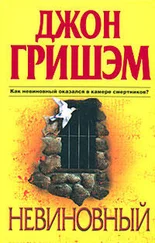“A favor? Right now I’d like to choke you.”
“Yeah, but you won’t. Tomorrow morning at six, I’ll walk into the Coffee Shop and say hello to Marshall Prather. Same routine. Might be another deputy or two at the table. I need a wingman.”
“You’ve lost your mind, Jake.”
“Come on, pal. Think of all the crazy stuff I’ve done for you.”
“Nope. You’re on your own. Tomorrow mornin’ you get another dose of life as a small-town criminal lawyer.”
“And you’re afraid to be seen with me?”
“No. I’m afraid of wakin’ up that early. Beat it, pal. You’re makin’ your own decisions these days, without regard to others. I’m pissed and I plan to stay that way for a long time.”
“I’ve heard that before.”
“This time I mean it. You wanna play radical lawyer, get your buddy Lucien to join you for breakfast. See how the locals enjoy him.”
“He can’t get up that early.”
“And we know why.”
—
WITH HANNA TUCKED IN for the night and Jake out roaming the streets, Carla watched television and waited on the ten o’clock news. She started with the Tupelo station where, as expected, the murder of Stuart Kofer was the lead story with a large color image of the deputy in his nicely starched uniform posted as background. Details were still under wraps. A suspect, a minor, name not given, was in custody. There was footage of an ambulance leaving Kofer’s property with, presumably, a dead body inside but none visible. No comment from the sheriff or anyone else with authority. No comments anywhere, yet the intrepid reporter on the scene managed to ramble on about the killing for a solid five minutes while saying almost nothing. Filler was added with live shots of the Ford County Courthouse and even the jail, where some patrol cars were filmed coming and going. Carla switched to a Memphis station and learned even less, though for good measure the story included something vague about a “domestic disturbance,” with the mild implication that Kofer had been called to the scene to break up a fight and somehow got hit in the crossfire. There was no reporter on the scene to get to the bottom of things. Evidently, a weekend intern at a news desk was ad-libbing. Another Memphis station spent half its time recapping the city’s own daily carnage of home invasions, gang wars, and random murders. It then went south to the Kofer story and the real news that, allegedly, he was the first county officer to be killed “in the line of duty” since a moonshiner shot two deputies in 1922. Not surprisingly, the reporter spun things to give the impression that the county was still rife with illegal whiskey, drugs, and other lawlessness, a far cry from the safe streets of Memphis.
Jake walked in during the last report, and Carla turned off the television and briefed him on the others. He wanted some decaf coffee. She brewed a pot and they had a cup at the breakfast table where the long day had begun.
He replayed his conversations with Ozzie, Drew, and Harry Rex, and he confessed that he was not looking forward to the coming week. She was sympathetic but obviously worried. She wanted the case to simply go away.
7
After the Sunday night service at Good Shepherd, Reverend McGarry convened a special meeting of the board of deacons. Seven of the twelve were present, four women and three men, and they gathered in the fellowship hall with cookies and coffee. Kiera was next door in the small church parsonage, with Meg McGarry, the pastor’s wife, eating a sandwich for dinner.
The young preacher explained that since Kiera had no other place to go at the moment, she would be staying with them until—until what? Until a relative showed up to claim her, which didn’t appear likely? Until some court somewhere issued an order? Until her mother was discharged and could leave town with her? Regardless, Kiera was now an unofficial ward of the church. And she was traumatized and needed professional help. Throughout the afternoon she had talked of nothing but her mother and brother and her desire to be with them.
Meg had called the hospital and talked to an administrator who said that, yes, they could provide a foldaway bed for the girl to stay with her mother. Two of the lady deacons volunteered to spend the night down the hall in the waiting room. There was a discussion about food, clothing, and school.
Charles was of the firm opinion that Kiera should not return to classes for at least a few days. She was far too fragile and there was the near certainty that another student would say something hurtful. It was finally agreed that the school attendance issue would be dealt with on a day-by-day basis. One member of the church taught algebra at the middle school and would talk to the principal. Another member had a cousin who was a child psychologist and she would inquire about counseling.
Plans were formulated, and at ten o’clock they drove Kiera to the hospital where the staff had arranged a bed next to her mother’s. Josie’s vitals were normal and she said she felt okay. Her swollen and bandaged face, though, told another story. A hospital gown was provided for Kiera, and when the nurses turned down the lights, she was sitting at her mother’s feet.
—
AT 5:30 A.M. Jake’s alarm clock started making noises. He silenced it with a slap and rolled back under the covers. So far, he had slept little and was not ready to begin his day. He burrowed deep, found Carla’s warm body, moved closer but was met with resistance. He withdrew, opened his eyes and thought about his newest client sitting in jail, and was about to surrender to the morning when thunder rolled in the distance. A cold front was expected, with potential storms, and perhaps it wasn’t safe to venture out. Another reason to sleep more was the desire to avoid the Coffee Shop on this dark day, when all the chatter and gossip would be about poor Stu Kofer and the teenage thug who murdered him.
Yet another reason was the fact that he was not due in court or anywhere else the entire day. As the reasons accumulated he felt them closing in, smothering him, and eventually he drifted off.
Carla wakened him with a pleasant kiss on the cheek and a cup of coffee, then she was off to rouse Hanna and get her ready for school. After two sips, Jake thought about the newspapers and hopped out of bed. He pulled on some jeans, found the dog, leashed him, and went outside. The morning editions from Tupelo, Jackson, and Memphis were strewn along his drive, and he quickly scanned each. All had the Kofer story on the front page. He tucked them under his arm, made the block, and returned to the kitchen where he poured more coffee and spread out the papers.
The gags were holding; no one was talking. Ozzie wouldn’t even confirm that he was the sheriff. Reporters had been shooed away from the crime scene, the jail, the home of Earl and Janet Kofer, and the hospital. Officer Kofer was thirty-three, an army veteran, single with no children, four years as a deputy. The sparse details of his bio were spread thin. The Memphis paper covered the story of Kofer’s deadly run-in with some drug dealers three years earlier on a rural road near Karaway, a shoot-out that left the bad guys dead and Lieutenant Kofer only slightly wounded. A bullet grazed his arm and he refused hospitalization and never missed a day of work.
Jake was suddenly in a hurry. He showered, skipped breakfast, kissed his girls goodbye, and headed to the office. He needed to visit the hospital and it was imperative that he see Drew again. He was convinced the kid was traumatized and needed help, medical as well as legal, but he wanted to pick the right moment for another attorney-client consultation.
Evidently, others felt differently. Portia was at her desk, standing, holding the receiver of her phone, looking puzzled. Her customary smile was missing as Jake walked into the office.
Читать дальше












![Джон Гришэм - Апелляция [Фейк]](/books/403002/dzhon-grishem-apellyaciya-fejk-thumb.webp)